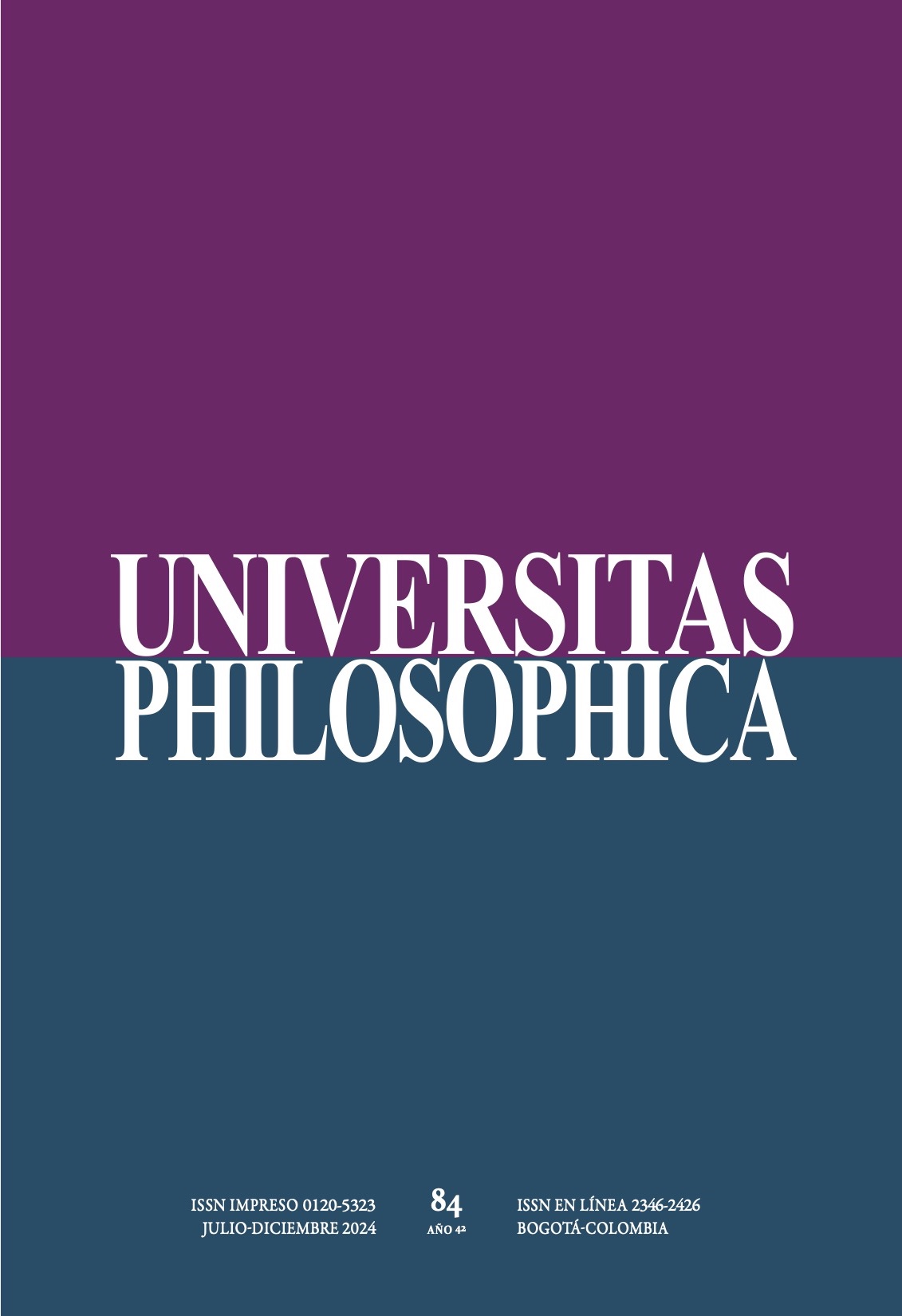Resumen
En este artículo analizamos el concepto y el papel que cumple la música, en especial el compás musical, dentro de la estética hegeliana, bien sea como manifestación sensible del espíritu o vehículo de autoconocimiento. Posteriormente, argumentamos que el compás musical constituye una primera objetividad que organiza el sonido a través del tiempo, lo que genera una suerte de poder mágico que conecta la pieza musical con el interior anímico del oyente. A través del compás, el espíritu imprime orden al tiempo y revela una dimensión cognitiva que trasciende la inmediatez del sonido. Así, la música se presenta como una forma artística única que une interioridad y razón en una experiencia reveladora para el ser humano.
Adorno, T. W. (2002). Sobre la música popular (On Popular Music). Guaraguao, 6(15), 163-201. https://www.jstor.org/stable/25596308
Bécquer, G. A. (2001). Rimas y leyendas. Pehuén Editores.
Cataldo, G. (2012). Música y subjetividad. Hegel y las concepciones románticas de la música. Anales del Seminario de Historia de la Filosofía, 29(67), 593-608. https://doi.org/10.5209/rev_ASHF.2012.v29.n2.40701
Dahlhaus, C., & Eggebrecht, H. H. (2012). ¿Qué es la música? (L. Bredlow, trad.). Acantilado.
Debernardi, I. (2020). Las lecciones sobre estética de Hegel: discrepancias fundamentales entre la edición de Hotho y los Nachschriften. Aisthesis, 67, 9-30. https://doi.org/10.7764/67.1
Díaz, E. (2007). Hegel y la ciencia de la experiencia de la conciencia. Perspectivas Metodológicas, 7(7), 151-159. https://doi.org/10.18294/pm.2007.516
Espiña, Y. (1996). La razón musical en Hegel. Eunsa.
Hegel, G. W. F. (1973). Introducción a la historia de la filosofía. Aguilar.
Hegel, G. W. F. (1986). Werke in 20 Bänden. Vorlesungen über die Ästhetik (17ª ed., Vol. 14., E. Moldenhauer & K. M. Michel, Eds.). Suhrkamp.
Hegel, G. W. F. (2011). Lecciones sobre la estética (A. Brotons, trad.; 2ª ed.). Akal.
Hegel, G.W. F. (2006). Filosofía del arte o estética (D. Hernández, trad.). Abada.
Huesca, F. (2020). La forma estética en Hegel: el arte como un vehículo cognitivo. Tópicos del Seminario, 43, 105-121. https://doi.org/10.35494/topsem.2020.1.43.663
Kant, I. (2017). Crítica de la razón pura (J. L. Villacañas, trad.). Gredos.
Llanos, A. (1988). Aproximación a la estética de Hegel. Editorial Leviatán.
McNabb, D. (2012). Hegel y el arte [Video y libreto]. Youtube. https://www.youtube.com/watch?v=RkAFdvuZdF4; https://drive.google.com/file/d/0B6MAgzpLwdlUYllhdkdONDUxcFE/view?resourcekey=0-WJGpxnS2114KNOzrClZSKg
Moreno, M. (2022). La Gesamtkunstwerk hegeliana: La importancia de la ópera en la Estética de Hegel. Revista de Filosofía Universidad Iberoamericana, 55(154), 226-247. https://doi.org/10.48102/rdf.v55i154.166
Quignard, P. (1996). El odio a la música (P. Jacomet, trad.). Andrés Bello.
Rowell, L. (2005). Introducción a la filosofía de la música (M. Wald, trad.; 1ª ed.). Gedisa.
San Agustín. (2007). Sobre la música. Seis Libros (Luque, J. & López, A., trad.). Gredos.
San Agustín. (2011). Confesiones (Rodríguez, P., trad.). Alianza.
Saussure, F. de. (2017). Curso de lingüística general (M. Suñer, trad.; 5.ª ed.). Akal.
Yule, G. (2007). El lenguaje (N. Rafecas, trad.; 3ª ed.). Akal.

Esta obra está bajo una licencia internacional Creative Commons Atribución 4.0.
Derechos de autor 2025 Andrés Camilo Atehortúa Sequeda



